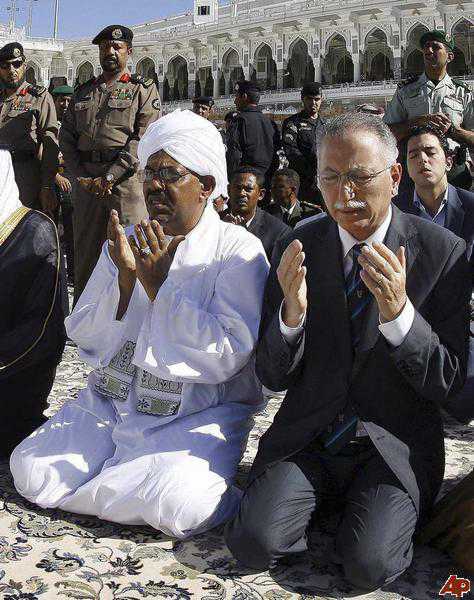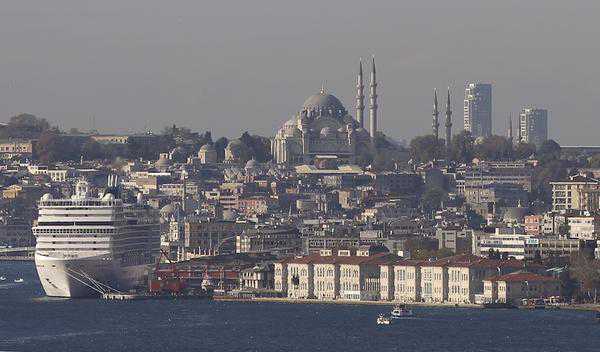By JOHN MAKENI
With Africa attracting growing interest among leading and emerging economic powers, Turkey has become the latest country to seek a strategic relationship with the continent.
Other economic powers that have similarly sought to engage African countries as a bloc are Europe through the annual EU-Africa Summit, Japan through the Tokyo International Conference on African Development (TICAD), and China.
In his opening remarks at the Ciragan Palace, Kempinski in Istanbul on August 18, Turkey’s President Abdullah Gul cited its long history of contact with Africa from the days of the Ottoman empire.
“Turkey has traditionally maintained good relations with the African continent. The Ottoman empire had contacts with the continent over a vast geography stretching from East and Central Africa to Zanzibar of today’s Tanzania,” said President Gul.
At the Turkish-African Civil Society Organisations Forum two days earlier, Ambassador Murat Bilhan, vice-chairman of the Turkish Asian Centre for Strategic Studies (TASAM), said Turkey contributed to Africa’s struggle for independence.
TASAM hosted the forum which drew 90 civil society organisations from 45 African countries, 85 others from Turkey and representatives from the African Union.
In 1960, Turkey established diplomatic ties with all the newly independent countries in Africa and now it has 12 embassies and over 20 honorary consulates. During the summit President Gul said his country plans to open 15 new embassies.
The change of attitude which has seen Africans increasingly taking their destiny on their own hands has not escaped the attention of Turkey either.
“The founding of the African Union and the New Partnership for Africa’s Development (NEPAD) are encouraging signs of new thinking, which the developed countries should recognise and respond to.
“If we acknowledge Africa’s true nature and rich diversity, we will be in a position to effectively support developments on the continent in collaboration with Africans themselves,” said President Gul.
“Africa and Turkey note with great concern that while some countries have reaped the benefits of globalisation, most African countries remain marginalised within the globalising world economy.”
But if President Gul tried his best to couch his country’s renewed interest in the continent in diplomatic language, it wasn’t lost on delegates attending the civil society forum what Turkey’s real intentions are.
Tom Wheeler, research associate at the South African Institute of International Affairs, noted that Turkey was rapidly developing its industrial economy and its exports and therefore needed the resources Africa can provide. Africa, he said, can be a useful export market for Turkey’s manufacturers.
“The Turks have seen Japan, China, India, the European Union, not to mention the US, becoming more involved in Africa, and as a neighbour of the African continent, they decided that they needed to be there too,” said Wheeler.
Edwin Barasa, the director of programmes at Africa Peace Forum, said Turkey appeared genuine in its quest to do business with Africa.
“Turkey is an emerging economic force having developed the mining, energy and production industry and as such will most likely want to bend the balance of trade to its favour so as to reap maximum benefit,” said Mr Barasa.
Experts also believe Turkey is trying to woo Africa to achieve its ambitions at the UN.
“Undoubtedly, their ambition to win a non-permanent Security Council seat must come into equation. A bloc of 53 votes, if it can get that support, is a quarter of all votes. I am sure competing candidates will also be scurrying around Africa, soliciting support,” said Wheeler.
However, Turkey’s apparent preference for the so-called non-interference policy in its dealings with Africa did not go down well with the civil society people from the continent.
Ambassador Bilhan said while establishing ties with Africa, Turkey wants to steer clear of internal affairs of African countries.
China has been widely criticised by Western governments and human rights groups for adopting a similar policy, although such hostility does not seem to have significantly affected the Asian power’s bilateral relations with many African countries.
Notably, China continues to enjoy oil imports from Sudan despite calls by the international community that that it put pressure the Sudanese government to stop the crisis in Darfur.
Sudanese President Omar al-Bashir was recently indicted by the Internal Criminal Court for war crimes and crimes against humanity.
Some delegates at the civil society forum also felt that the Turkey might not have understood Africa well enough to be able to offer solutions to its problems.
Rinos Simbulo, a civil society activist from Zambia, warned the panel not to indulge in rhetoric, saying that the African problem can be solved right from the grassroots and not in a conference room.
Real problems
Most delegates were of the view that other development partners had failed because they sought to safeguard their own interests instead of understanding the real problems afflicting Africa.
Many Western countries, they said, still believe that aid is a major panacea to the continent’s woes.
Every year, for instance, Britain and the US commit billions of dollars in aid to social programmes in Africa such as HIV/Aids campaigns, rural development and education, with little to show for it.
The structural adjustment programmes (SAPs) of the 1990s implemented by development agencies such as the World Bankwere cited as another example of failed donor policies.
Many African countries have yet to even benefit from the African Growth and Opportunity Act (AGOA) signed into law in 2000 to offer incentives to African countries to build free markets.
Still, international relations experts believe Turkey’s strategic location and being closer to the African continent makes it a suitable partner for Africa.
“But as we saw at the forum, they still have a lot to learn about Africa, not least that they should not preach to Africans,” said Mr Wheeler.
Source : Sunday Nation, Kenya



